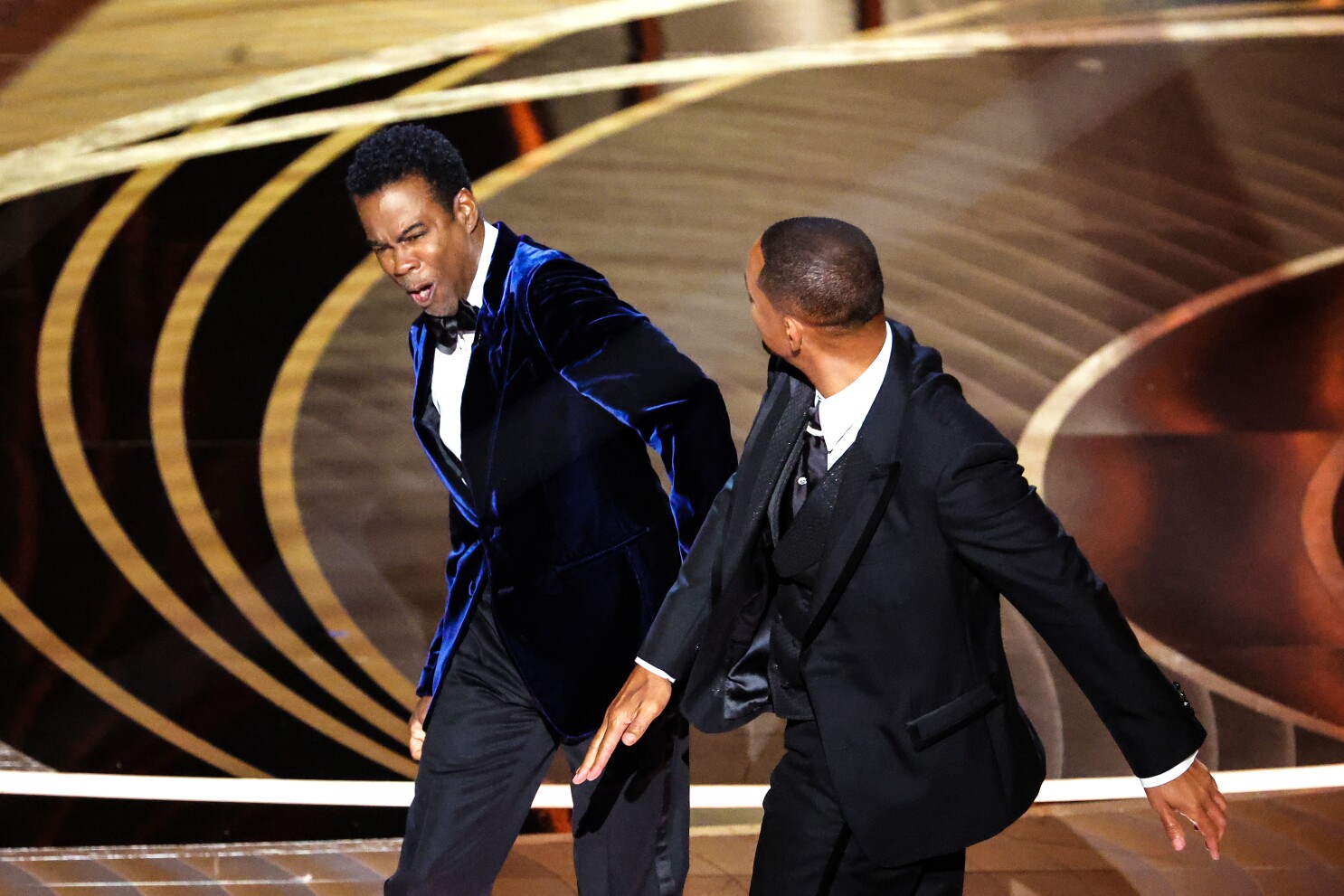Pop culture craziness always provides good insights into my tweens’ collective mentality. The Will Smith Oscars disaster was another such opportunity to learn about my kids’ perception of the world around them.
On Tuesday night my wife and two oldest boys, Lynden (14) and Yosef (16), took the time to air our views of the chaotic, Hollywood show-stopper.
First, we all could agree on was that Smith’s use of physical violence was not cool and should have resulted in an immediate ejection from the remainder of the ceremony. How Smith remained in the arena, front and center to congratulate all winners is a mystery.
There were several aspects of the night’s fiasco, though, that spawned more disagreement than agreement between my wife, I, and our sons.
Slapping Disagreement #1: Appropriate Joking or Not?
“I’ve heard WAY worse jokes told. That wasn’t even that bad.”
As Lynden nodded in agreement, Yosef’s expressed sentiment sent my wife and I into “what the hell” mode. We were astonished that our boys condoned the right of anyone to poke fun at another person’s physical appearance – particularly an aspect of their look for which they lack any control (ie: Jada Pinkett-Smith’s alopecia).
While I agree that comics, like Rock, tiptoe the line of appropriateness with each edgy punchline, the “G.I. Jane” joke was the same, to me, as ribbing a person with mental disabilities, a birth defect, or any medical-induced abnormality.
That, simply, is not cool in any context.
My boys agreed, and, of course, they’d never do such a thing (***eye roll***). But, in their mind, the the same courtesies do not apply to the Smith’s or Rock’s. Complicating matters for them, when choosing Chris Rock as a presenter, the audience should have been aware that no one was off limits for ridicule.
Sheesh.
Slapping Disagreement #2: No Empathy for Jada
Both of my son’s spent much of our time arguing that Jada Pinkett-Smith could (and should have) defused the situation immediately – that her rolling her eyes at a joke typical of an edgy comedian at an awards’ show somehow lit the match that exploded within Will Smith a few seconds later. Further, they argued that Jada could have silenced her husband after he returned to his seat and proceeded to shout the “f” word at Rock.
Wait a second – the victim of the joke is now the reason the whole situation spun out of control?
This mentality has me concerned because, to me, a victim is never responsible. The implication of believing so is that Smith only went berserk because his wife egged it on and/or refused to prevent it.
That is garbage.
We moved on.
Sheesh.
Slapping Disagreement #3: Money and Supporters
Virtually every argument that Lynden and Yosef brought up with my wife and I was bed-rocked by the idea that having money, stardom, and having “millions of supporters” supersedes the right to the fundamental basics of humanity.
“Chris Rock just made himself even more famous (again),” Lynden claimed.
“At the end of all of this, no matter what happens, they all have millions of dollars and supporters. They’ll be fine. It’s not like they really care or are really affected.”
I can understand why anyone would be slow to have sympathy for famous people – these stars choose this life and benefit handsomely from it. I can agree with that.
More interesting, though, this concept of “supporters” is something that I see pop up in my kids’ arguments about celebrities often.
To my boys, the definition of “supporters” refers to a celebrities influence as measured by social media following. They believe that Instagram followers create a feeling of communal support and love. How can anyone with three million “supporters” feel lonely or embarrassed or unsupported.
My wife and I know the opposite is generally true for anyone celebrity. These social forums are cesspools of trolls and awful statements about anything they do, wear, or say. Furthermore, many of these A-listers turn over control of their social channels because that world is so toxic to their own self-image – they don’t want any part of this “support.”
This perspective from Lynden and Yosef, though, confirms something that parents of teens flirting with social media should take note of – the idea that followers correlate to love, value, and real friendship. The reality kids, like my boys, should know is that few online followers truly support anything. Even worse, many are secretly looking forward to your demise.
No matter how many cautionary celebrity stories we brought up – from Anthony Bourdain to Robin Williams – my boys think that fame, notoriety, popularity, and money will soften any fall or prevent it altogether.
Sheesh.
The four of us – my wife, Yosef, Lynden, and I – ended our argument where most parents do with their teenagers: agreeing to disagree about most of their takes.
In some ways, I was frustrated with their callus view of a medical condition being ribbed and a wife’s responsibility for a tirade by her husband. I left the conversation with a better understanding, though, of how they process the lives of others through the highlight versions of reality that dot Instagram.
No matter how I felt and whether (or not) we walked away in agreement (or not), I was gratified with having a near-adult conversations with my boys – two growing teens who are forming opinions of their own about divisive issues and ideas.
To steal a phrase from a shell-shocked Chris Rock, watching our two boys growing up on this night “slapped the sh*t out of me.”
I guess that’s the one thing I can thank the Academy for.
